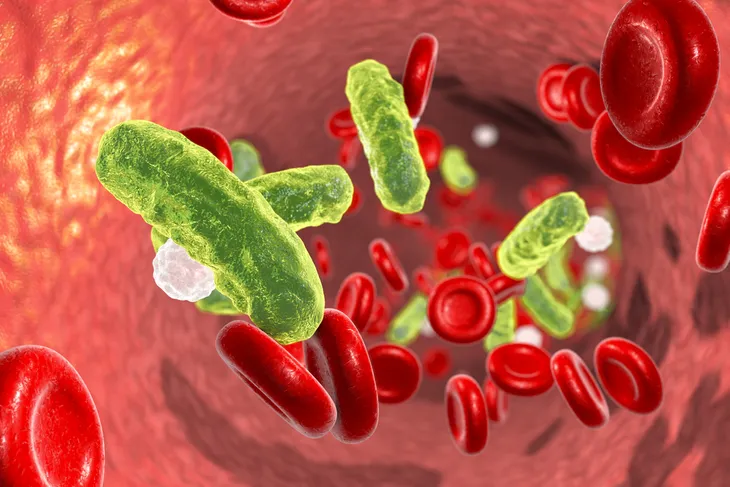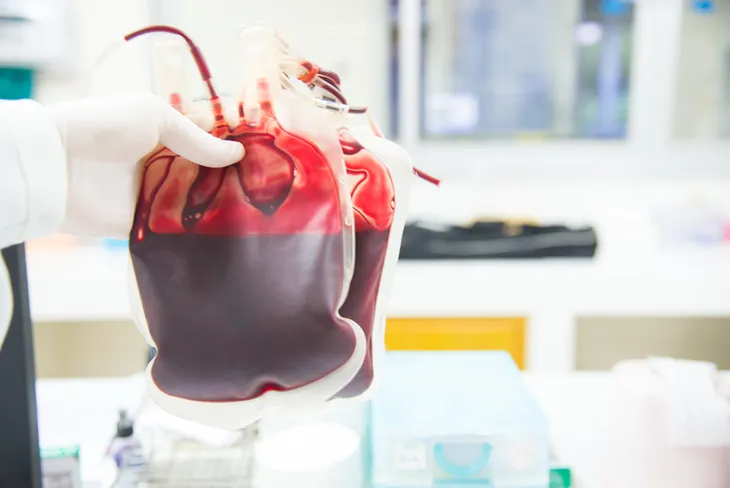The media and medical world place a lot of emphasis on high blood pressure, as it can lead to bigger problems like stroke or heart attacks. However, there are a substantial number of Americans out there dealing with the opposite problem – low blood pressure (or hypotension).
However, what some people might not be aware of is that low blood pressure can be just as dangerous, as lack of blood flow to major organs can cause heart attacks, kidney failure, or death according to MedicineNet. Aside from potentially serious symptoms, here are 12 possible causes of low blood pressure…
1. Hormone Imbalances
The Mayo Clinic explains that “endocrine problems” can lead to low blood pressure. These conditions, some tied to the thyroid gland that controls many of the body’s functions, include parathyroid disease.
Addison’s disease (adrenal insufficiency) is also a possible cause. The source puts a couple of other health problems into the endocrine malfunction category – these include low blood sugar (hypoglycemia) as well as diabetes.
2. Certain Medications
NHS in the UK explains certain prescription medications could be causing your low blood pressure. For example, beta-blockers meant to address problems with your heart may be negatively impacting your blood pressure, it explains.
Other medications that have been tied to hypotension include angiotensin-converting enzyme (ACE) inhibitors, diuretics, and even some antidepressants, adds the source. Talk to your doctor if you’re on a new drug or your dosage has changed, and you’re experiencing symptoms attached to low blood pressure such as light-headedness.
3. Parkinson’s Disease
WebMD explains that patients who have Parkinson’s, characterized by tremors, could also experience dizziness associated with low blood pressure. The source explains the light-headed feeling you get when you stand up too fast – known as orthostatic hypotension – is common among Parkinson’s patients.
It also notes that this hypotension can be a symptom of the disease itself, or could be triggered by a drug meant to treat Parkinson’s. “Almost any of the commonly prescribed Parkinson’s disease drugs can cause or worsen lightheadedness,” it explains.
4. Spinal Cord Injury
A post on Nature.com examines orthostatic hypotension following a spinal cord injury (SCI). “Numerous clinical reports have suggested that unstable blood pressure control in individuals with SCI could be responsible for their increased cardiovascular mortality,” notes the source.
The source explains that the mechanism for regulating blood pressure can become disrupted following a spinal injury. It is referred to as “sympathetic hypoactivity” that can result in resting low blood pressure, and loss of adaptability of blood pressure, it adds.
5. Septic Shock
Also known as sepsis, it’s the result of an infection and it can be life-threatening, according to Healthline. When the infection becomes more serious, it can affect the function of your vital organs, it adds.
Among the many (probably more unpleasant symptoms) of septic shock including high fever, delirium and breathing difficulties (the later 2-symptoms are tied to severe septic shock), very low blood pressure “that doesn’t respond to fluid replacement” is another sign. Which brings us to our next possible cause…
6. Dehydration
The American Heart Association explains that a symptom of low blood pressure is extreme thirst, indicating dehydration. “Dehydration can sometimes cause blood pressure to drop. However, dehydration does not automatically signal low blood pressure,” it explains.
However, a problem associated with dehydration (there are many) includes low blood volume, which means your blood pressure is going to plummet. Low blood volume can also be the result of bleeding (externally or internally) from an injury, adds the source.
7. Nutritional Deficiencies
The Mayo Clinic says that missing key components of your diet can lead to low blood pressure. In particular, if you’re not taking in enough Vitamin B12 and folate, you can develop anemia, which is tied to hypotension.
Anemia is the lack of production of red blood cells and hemoglobin, which carry oxygen throughout your body. There are different forms of anemia, but the symptoms of all of them can include feeling tired, weak, and having pale skin, among other signs.
8. Stress
We often associate stress with racing pulses, reddened faces and high blood pressure, but the Better Health Channel (in Australia) notes that severe stress can actually be the cause of a sharp drop in blood pressure.
The source lists emotional stress, fear, insecurity and pain as possible culprits of low pressure, and also lists these factors as the primary reason for fainting, which is quite common when blood pressure drops too low.
9. Pregnancy
Feeling symptoms of low blood pressure could be a result of being pregnant, explains the Mayo Clinic. The source explains the “circulatory system expands rapidly” to accommodate the fetus during pregnancy, and your blood pressure will likely drop as a result.
The good news is that this is normal during pregnancy, and the source says your blood pressure will likely return to its pre-pregnancy levels after the baby has been born. High blood pressure is actually more likely to be caused by pregnancy (and doesn’t present many symptoms, if any), so it’s wise to be monitored by a doctor.
10. Blood Loss or Internal Bleeding
MedicineNet explains that loss of blood, either internally or from an external wound, can cause your blood pressure to drop. This could be the result of a bleeding stomach ulcer, or a severe laceration, it adds.
It says when your body detects blood pressure has dropped, it will respond to make up the deficit by quickening the heartbeat, increasing the power of the heart contractions, and narrowing veins to return more blood to the heart. Of course, it should go without saying that if you’re injuries are bad and there’s loss of blood, seek medical attention.
11. Severe Allergic Reactions
Also known as anaphylactic shock, these kinds of reactions (for example, ingesting peanuts or being stung by a bee) can have the heart rates of those witnessing it to rise. However, in the patient, the allergy can cause a dangerous drop in blood pressure, says Australia Wide First Aid.
The source explains that during an anaphylactic reaction, the body will release certain chemicals (including histamine) that end up in cells and tissues. Histamine can cause your blood vessels to widen, which will cause a “sudden and severe” drop in blood pressure, it explains.
12. Heart Disease
It’s probably not a big shock that if the organ responsible for pumping blood is not functioning properly, it can affect your blood pressure. MedicineNet.com says you may have weakened heart muscle from one or more heart attacks.
Another heart condition that can affect the organ’s ability to pump blood is a very low heart rate, called bradycardia, heart valve problems, heart attack, and heart failure reports the Mayo Clinic.















